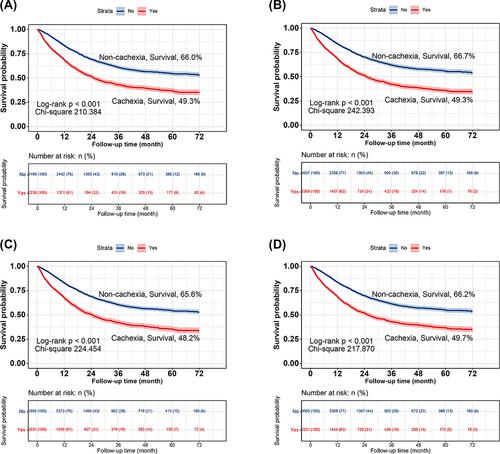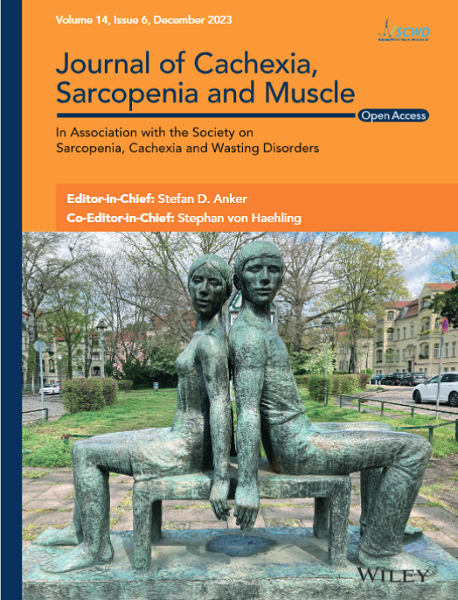The Asian Working Group for Cachexia (AWGC) proposed the first consensus report on diagnostic criteria for cachexia in Asians in 2023. However, the current consensus lacks cohort evidence to validate its effectiveness and practicality. We aimed to explore the value of the AWGC2023 criteria for predicting the prognosis and medical burden of patients with cancer through a retrospective post hoc cross-sectional analysis of the Investigation on Nutrition Status and its Clinical Outcome of Common Cancers (INSCOC) project in China.
Cox regression analyses were performed to assess the independent association between cachexia and long-term survival. We utilized C-reactive protein (CRP), neutrophil-to-lymphocyte ratio (NLR), inflammatory burden index (IBI), albumin (ALB) and Glasgow prognostic score (GPS) as diagnostic markers for cachexia, designating them as CRP-based cachexia, NLR-based cachexia, IBI-based cachexia, ALB-based cachexia and GPS-based cachexia, respectively. Additionally, we diagnosed cachexia using body mass index (BMI) cutoff values of 18.5, 20, 21 and 22 kg/m2, respectively, and subsequently compared their prognostic predictive value through Harrell's concordance index (C-index). Logistic regression models were used to assess the association between cachexia and medical burden.
A total of 5426 patients with cancer were enrolled in this study. Cox regression analysis confirmed that cachexia based on the AWGC2023 criteria was an independent predictor of long-term survival in patients with cancer. Patients with cachexia had significantly poorer long-term survival than patients without cachexia (66.4% vs. 49.7%, P < 0.001). Inflammatory biomarker-based cachexia was as an independent predictor of prognosis in patients with cancer, with inflammatory burden index (IBI)-based cachexia demonstrating the optimal prognostic discriminatory ability. The C-index indicated that cachexia based on BMI cutoff values of 18.5, 20, and 22 kg/m2 did not perform as well as a BMI cutoff value of 21 kg/m2. Logistic regression models revealed that using the AWGC2023 criteria, patients with cachexia had a 16.6% higher risk of prolonged hospitalization and a 16.0% higher risk of high medical expenses than patients without cachexia.
The AWGC2023 criteria represent a valuable tool for predicting survival and medical burden among Chinese patients with cancer. Encouragement for further validation in other Asian populations is warranted for the AWGC2023 criteria.



